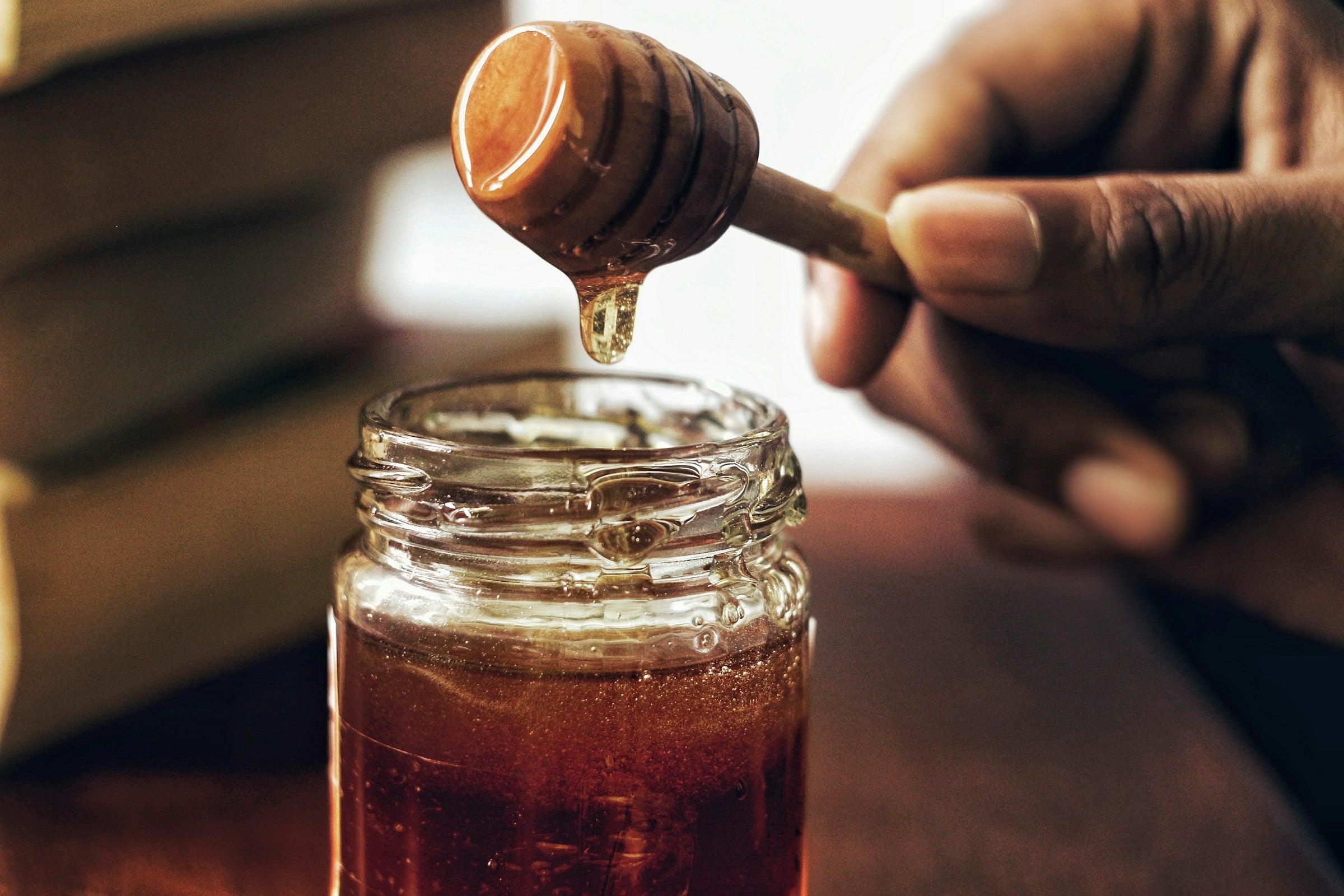
FAQ
Collapsible content
Why is From The Beehive honey recommended for hay fever sufferers?
Our honey is 100% pure, raw, natural honey straight from our bee's hives. This means that From The Beehive honey will have pollen in the honey itself. It is believed that eating honey rich with the sort of pollen that you could be allergic to in hay fever season, before the season begins, can aid your body in becoming accustomed to the pollen. If you live in any of the counties that our honey is produced in, you can buy honey that is full of the pollen local to you. If you don't live in any of our bee's home counties don't worry; flora across the UK is very similar wherever you are so you will still get the benefits from any of our honeys.
What makes some honey runny and other honey set?
We don't actually do anything to our honey to make some honey runny and other honey set. All honey - when left long enough - will become set honey. Whether the honey sets quickly after harvesting it, or whether it remains runny for a longer period of time, is dependant upon the type of nectar that our bees collect! In the Summer our bees are more likely to collect nectar that allows their honey to stay runny for much longer after harvesting than the sort of pollen that they are likely to find in the Spring.
What are the differences between From The Beehive honey and supermarket honey?
Our honey is completely natural and can be traced back to the From The Beehive hives, where our bees feast on the nectar from the local flora. You have to read the fine print on jars of supermarket honey to see exactly where the honey has come from. Some may be a mixture of honey from hives across Britain, some may stretch to hives across Europe and others could include honey from hives across the world. We guarantee that our bees have access to natural flowers to collect nectar from.
Do From The Beehive beeswax products have anything added to them?
Just like our honey, our beeswax products are 100% natural, with no adding colourings or smells. A telltale sign of the natural beeswax is the change in colour over long periods of time. Our freshly made beeswax blocks are golden yellow, but over time a white film forms on the beeswax as it ages. Don't worry though, even if your beeswax loses some of its vibrancy, it will work just as well as a freshly formed block of beeswax.
Do you add any fragrances to your candles?
Our current range of candles are 100% beeswax. Beeswax has a subtle sweet smell as it melts which we really love, but we may experiment with natural essential oils for bolder smells in the future, so watch this space!
Could From The Beehive supply wholesale orders?
We're always happy to talk to bulk-buyers and wholesale orderers. Contact us through our online form or phone/ email us to arrange an appointment with a member of our sales team.
How long do bees usually live for?
Not all bees are created equal; even within honey bees, some live longer than others. The Queen Bee of each hive can live anywhere from two to five years, if she's really lucky she could make it all the way to her seventh birthday! The average lifespan of a Drone honeybee is around eight weeks, but varies depending upon how welcome they are within the hive, considering that they don't actually do anything toward the pollen collection or honey and wax production. Finally, the bees that we're most likely to see in our flower beds, Worker honeybees live for approximately six weeks in the summer, because they're workaholics that tire themselves out for the good of the hive. In the winter, Worker honeybees can live for more than five months whilst they're huddled around the Queen Bee, snacking on the honey collected during the year, waiting for the Spring flowers to bloom.
Do the bees mind that we eat their honey and use their wax?
Happy bees produce 2 to 3 times more honey than they need to survive the Winter. When bees overproduce honey they can fill their hives so full of honey and wax that they have no room to live or raise their young. If the Queen Bee decides that the hive has become too crowded she will rally the bees to swarm together and abandon the hive. As seasoned bee farmers we know exactly how much honey and wax the bees need in each of their hives to stay happy and productive, without feeling too cramped and leaving them enough food supply to see them through the Winter. We also keep our bees happy by putting in defences against mice who might try to sneak up on a docile hive during the Winter to steal their honey.
Could I put a beehive in my garden?
Beekeeping is a fantastic hobby and one that has ballooned from a hobby into a career for our family here at From The Beehive. However, there are many considerations to take into account before committing to your own hive. Hives need at least ten feet of clear space around them to function well, which many domestic gardens don't have. You also need to consider whether your neighbours would be happy living near a beehive, where you will need to disturb the bees every now and again to harvest the honey. If your bees do decide to swarm outside of the hive, you may be called to try to remove the swarm if it collects in a neighbour's garden.
